- 5
The 2011 Canadian Grand Prix
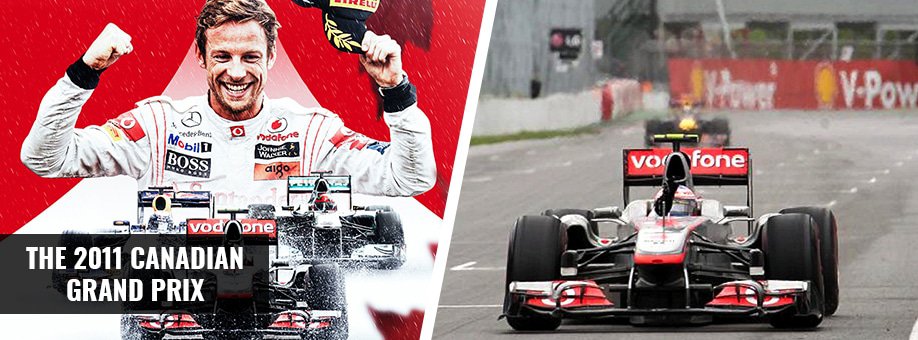
The Best Sporting Comeback in Motorsport History
We start with a slightly oddball entry or honourable mention on our list of best ever sporting comebacks, as this occurred in Canada but not with a Canadian team. The country has a proud motorsport tradition, with the name Villeneuve looming large in F1 as one of the most well known Canadian champions. Indeed, the nation's F1 track is named after Gilles Villeneuve, and this was the site of probably the best F1 comeback the world has ever seen. Residents of Montreal will be acutely aware that it can rain. And sometimes it can rain a lot. The 2011 Canadian Grand Prix saw bucketloads fall, to the extent that the race began behind the safety car and ultimately had to be red flagged and an interval of two hours imposed just to try and let it get dry enough to be driveable.
Even Jenson Button, famed for his wet weather capabilities, had problems, colliding with his team mate Hamilton and then Alonso, which put the Briton last around halfway through the race. But then Button's prowess started to tell as the track was becoming drier, and he was gaining time hand over fist on the leaders, including Vettel (who was in his prime and in his customary position of 1st). As the laps ticked down Button hauled himself into the points, then onto the podium, but it became apparent he lacked the laps needed to pass Vettel despite being far faster. And then the German, on the very last lap, made almost his only mistake of the whole season, running wide and presenting Button with a golden opportunity to win the longest race in F1 history, a sporting comeback in Canada that had seen him last halfway through but 1st at the chequered flag. - 4
Mario Lemieux
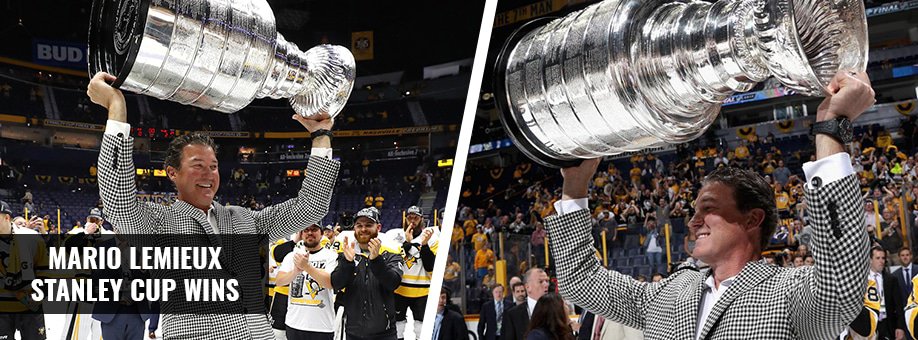
The Triumphant Return of Super Mario
One of the wealthiest Canadian sports stars, Mario Lemieux is known by many nicknames, ranging from Super Mario to The Magnificent One, and Le Magnifique. If it weren't for Wayne Gretzky he'd be seen by most as the greatest hockey player of all time, and even with Gretzky many still think Lemieux was actually the better player. Combining size with speed, a deft touch with power, Lemieux was a monster on the ice, and led the Pittsburgh Penguins to consecutive Stanley Cup triumphs in 1991 and 1992 (winning three more as owner once his playing days were done). Only Gretzky has achieved a higher average of assists per game and points per game. All that sounds great, but it comes into some real perspective when one realizes just what a series of health problems Lemieux had to overcome. A lot of his career was a sporting comeback in itself.
In the 1989-90 NHL season Lemieux had an unbroken run of 46 games in which he scored at least a point, but injury ended this prolonged purple patch. This back injury worsened and he suffered a herniated disc, and this was then exacerbated with infection. Surgery on his back was necessary, and Lemieux duly missed 50 games in the 1990-91 season. He was still in pain when he led the Penguins to victory in the Stanley Cup, an epic sporting comeback.
Sadly, this wasn't the end of injury woe for Lemieux. He could only manage 64 games in the 1991-92 season due to being riddled with health problems (including a broken hand courtesy of New York Rangers' Adam Graves). Despite all this, Super Mario helped his side to a second consecutive Stanley Cup win that today would have blown up online sportsbooks like Sports Interaction Casino. In 1992-93 things seemed better at first and Lemieux was racking up points nicely before announcing he had cancer (Hodgkin's lymphoma). Radiation treatment put his career on hiatus, but when he came back his presence inspired the Penguins to a 17 game run of wins. - 3
The 1972 Summit Series
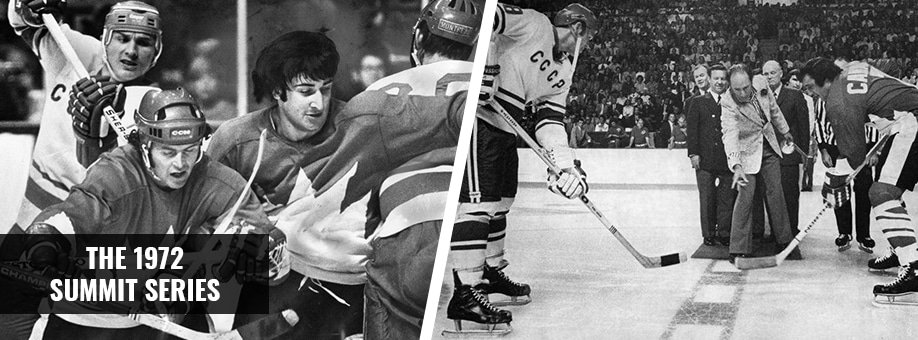
An Eight Game Sporting Comeback
Ice hockey is Canada's national sport, and it was also one of the Soviet Union's chief areas of sporting prowess making clashes on the ice a natural battleground to see whether West or East would end up on top. There were numerous major contests between the two sides and one of the most famous sporting comebacks happened at the 1972 Summit Series. This was an eight game series played on the ice between the two hockey nations, and marked the first national return to hockey for Canada after a withdrawal due to a dispute with the International Ice Hockey Federation (IIHF). This absence of Canada from the world stage had allowed the Soviet Union to become the top dog in international competitions.
The hosting was split for this tumultuous contest, with the first four games held in Canada, while Moscow held the latter half. But home advantage didn't count for much and the Soviets started well, inflicting a 7-3 defeat on the Canadian side in their own backyard. After being unexpectedly humbled, Canada fought back to win 4-1, but the third game was a tie. By the time the Canadian leg of the series was complete, the Soviets had a one game lead, and what many had thought would be an easy victory for Canada was looking anything but.
A fortnight of rest and reflection was followed by the fifth game in Moscow. The Soviets had the better of it, and increased their lead to 3-1, with just three games left to play. In short, Canada had to win every single game. Mission Impossible? No, but it was certainly Mission Improbable. It was do or die, and game six started poorly, again, for the Canadians, but they came back from behind to win it 3-2 and keep a flicker of hope alive. Phil Esposito proved his great value as a player by scoring two of Canada's goals to take game seven 4-3, and set up a nail-biting climax to the eight game series, which was destined to go down to the wire. The last game would determine the victor, but wrangling over referees meant it almost never happened. Yet again, the Soviets scored first and Esposito levelled things up, but eventually the opposition took a 5-3 lead over Canada, before the Canadians bounced back and made it 5-5. What happened next has entered Canadian folklore. Henderson attempted to score with an Esposito rebound, only to be blocked but then he clinched the series-winning goal off the second rebound. Canada won the series 4-3 in one of the greatest sporting comebacks ever. - 2
Harry Jerome
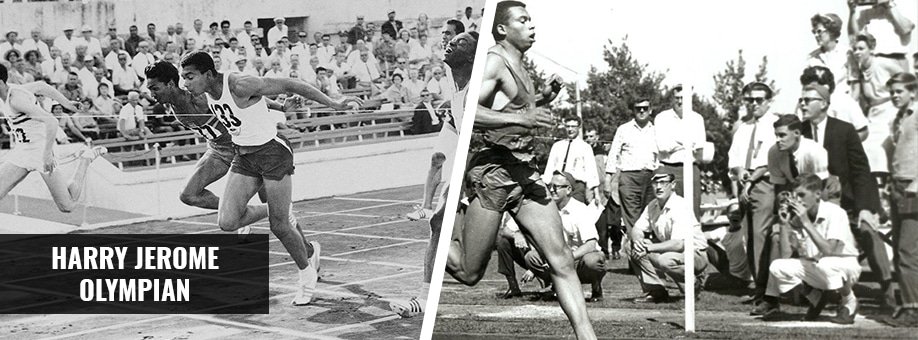
The Sprinter Who Bounced Back to Olympic Bronze
Sporting comebacks don't come much more inspiring than that of Harry Jerome. The grandson of John Howard, who represented Canada in the 1912 Summer Olympics, his sister Valerie was also an Olympian (competing in the 1960 Summer Olympics). With family like that it was no surprise that Harry also aspired to Olympic competition, but for a long time it seemed the stars were aligned against him. Sure enough, he made his Olympic debut in Rome, 1960, (the same Games in which his sister was a competitor) but suffered horrendous misfortune. During his 100m semi-final Harry Jerome tore his hamstring and was unable to finish. Accusations of being a quitter merely added salt to the very real wound.
Two years later a second injury struck him, at the 1962 British Empire and Commonwealth Games. Surgery was required to mend his whole left quadriceps, which had been torn. His run of bad luck is made all the starker by his immense potential, which had seen him equal the then record for the 100m (10.0s) in 1960. But speed wasn't Harry Jerome's only quality, he was also a tenacious athlete, and his sporting comeback saw him compete at the 1964 Summer Olympics in Tokyo. Nobody called him a quitter when he once again reached a semi-final and, this time, won it rather than suffering sudden injury. Come the final itself, Jerome managed to achieve a medal, winning bronze for Canada. And two years later he claimed a gold medal at the 1966 British Empire and Commonwealth Games. - 1
The 1987 Canada Cup
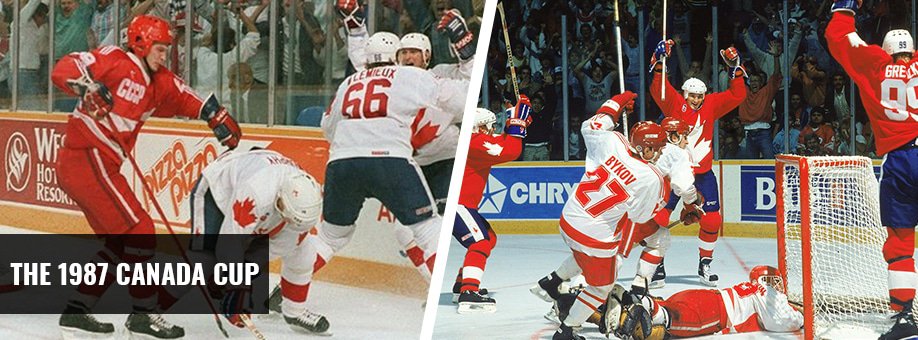
An Epic Sports Comeback Against the Soviet Union
In the 1980s, the world was a very different place. China was nowhere, but the Cold War was very much on between the West and the Soviet Union. There have been many sporting rivalries over the years between nations, and even within cities, but few have been quite as ideologically polarized as the battles on the ice between Canada and the Soviet Union. This came to a head in the 1987 Labatt Canada Cup, which was also notable for having an incredible lineup for the Canadians. A unique treat for hockey fans was seeing superstars Wayne Gretzky and Mario Lemieux playing on the same side - and at the time there was no doubt this was a sport Canada was better at than the USA. In fact, a full dozen of the Canadian side would end up in the Hockey Hall of Fame.
Canada and the Soviet Union had beaten their rivals to face one another in the final, a best of three games affair that many still consider to be the finest display of hockey the world has ever seen. But things didn't start well for the Canadians. After going down 4-1 to the Soviet Union early on, the team managed to get back to level pegging only to suffer the heartbreak of losing 6-5 in overtime. Just one more win was needed for the USSR to take the tournament, and they had two shots at it. The second game also saw a comeback, but this time it was the Communist superpower who turned around a 3-1 deficit, and although the Canadians, fantastically led by Gretzky and Lemieux, managed to edge ahead the Soviets were always able to level the score. Overtime came and went without any change, until the second period when Gretzky made his fifth assist to help Lemieux complete a hat trick and win the game.
And then it was down to a final game decider, after the first two had both been narrow victories only achieved in overtime. It took the Soviets only eight minutes to score three times, but this slow Canadian start only spurred them on and the scoreline turned around to 5-4. The Soviets soon equalized and it seemed yet another period of overtime was on the cards, but Lemieux, again aided by Gretzky, scored what proved a decisive goal to claim another 6-5 win, no overtime required. Multiple comebacks were achieved by the Canadian hockey team in this most memorable of sporting triumphs.
And that concludes our look at the pick of sporting comebacks achieved in or by Canada, with ice hockey naturally featuring in a major way. With the Soviet Union no longer around there isn't quite the same rival for Canada just yet, but victories over America and others will have to suffice.
